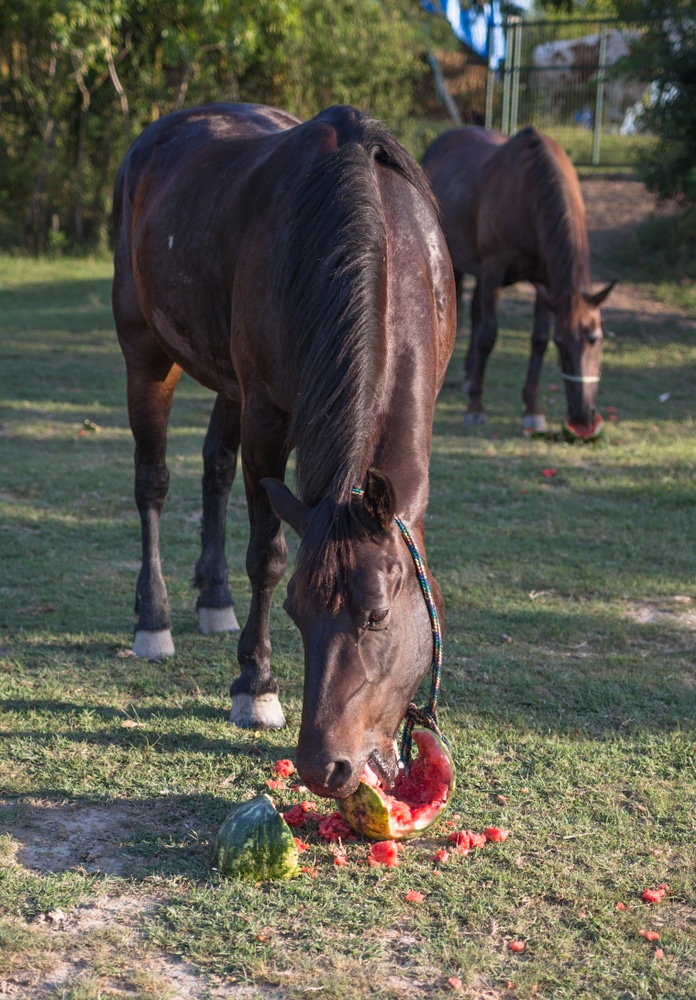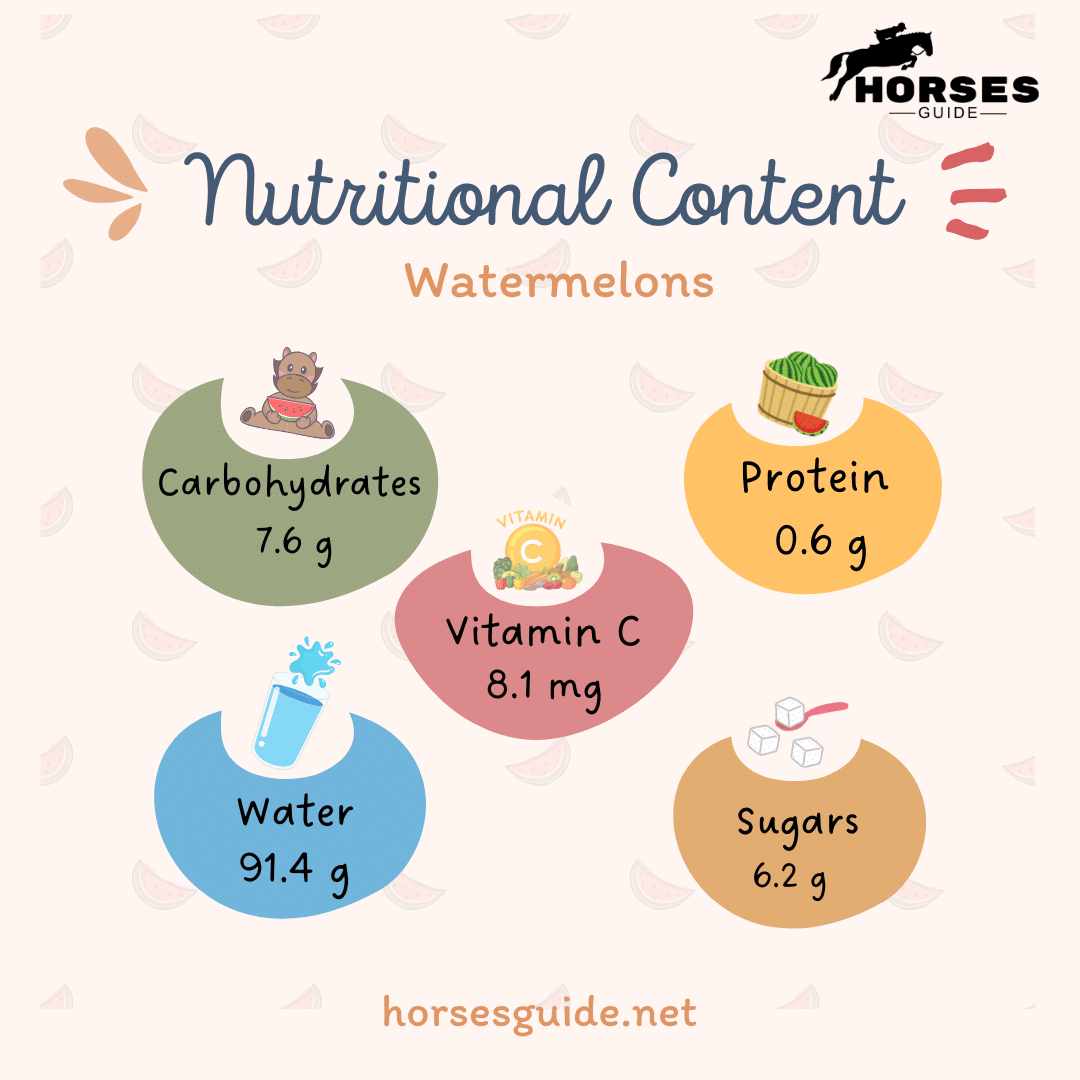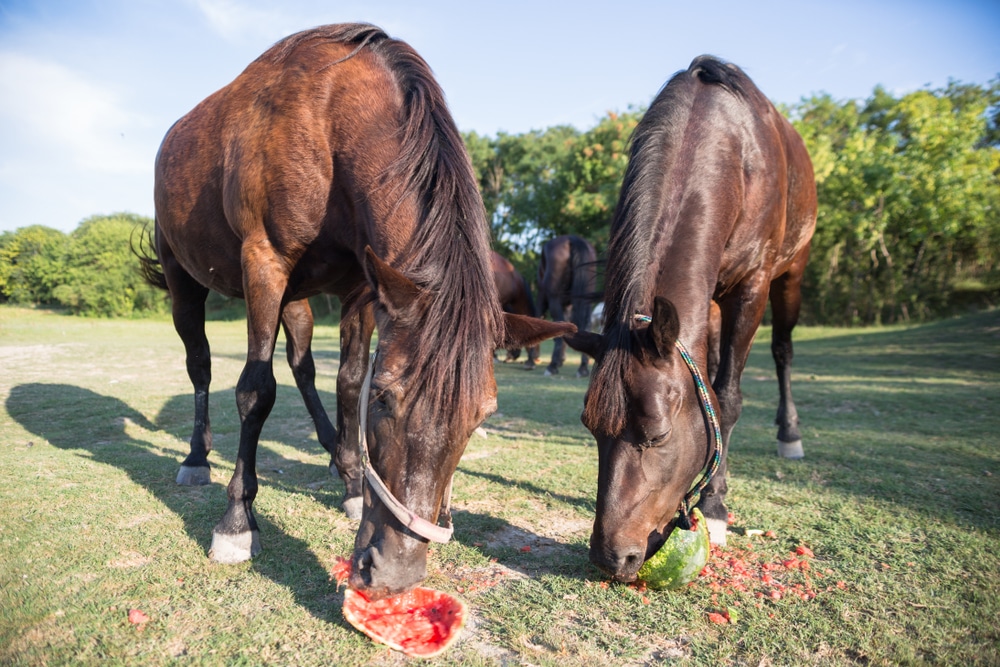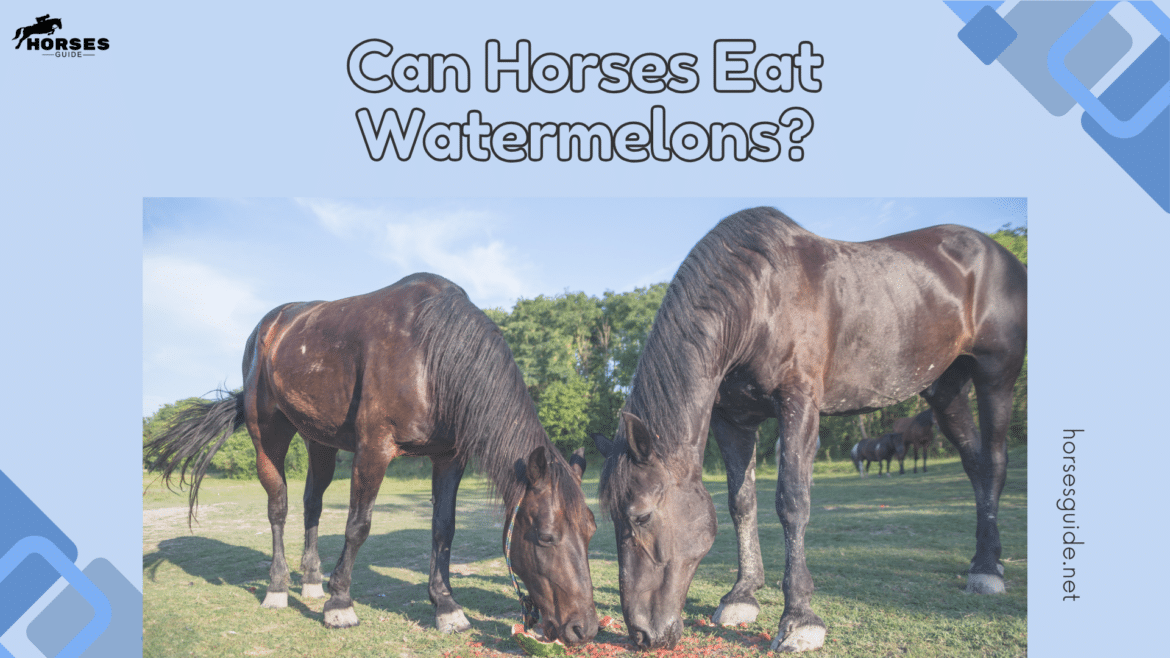Table of Contents
Are you looking for the perfect snack for your equine companion? Don’t worry; I have you covered. Watermelon, as much as it is liked by humans with all its nutrition and juiciness, hydration-packed fruit, is also very popular as a snack for horses. Not only is it an essential summertime treat, but the burst of flavors keeps your horses happy. So, if you want to treat your equine friend with the best, watermelon is the ideal choice. Fortunately, I am here with an article guide covering the nuances of horse nutrition. If you are wondering, “Can my horse eat watermelon?” the answer is YES, but what are the ideal ways to feed your horse this nature’s gift? This is what I am going to discuss in this article.
Benefits of Feeding Watermelon to Horse

Looking to make your horse the happiest critter in the pasture? Try tossing them a slice of watermelon because who says only humans can enjoy a sweet summer treat? Let’s see what benefits the watermelons come along with.
Hydration Hero
Watermelon is over 90% water—perfect for keeping your horse hydrated on hot days! Just a few slices can boost their fluid intake and refresh them after a ride.
Vitamin Powerhouse
Packed with vitamins A and C, watermelon helps support your horse’s vision and immune system. Plus, it has potassium and magnesium for healthy muscles and nerves!
Guilt-Free Treat
Low in calories and naturally sweet, watermelon is the ideal snack for weight-conscious horses. Say goodbye to sugary treats and hello to a delicious, healthy alternative!
Antioxidant Boost
Loaded with lycopene, watermelon fights oxidative stress from exercise and environmental factors. Treat your horse to this super snack for an extra health boost!
You can also check out different feeding treats for your equine fellow in this article for more details and a healthier diet.
Nutritional Content of Watermelons
Below is a table covering the nutrition this sweet fruit contains:

See how beneficial it is for your equine fellow. Read about its nutritional content from our table and thank us later.
Safety Tips

While watermelon can be a healthy treat, there are a few important safety precautions to ensure it is safe for your horse to consume.
Moderation is Key
Watermelon is great, but it should be a treat, not a meal! Keep it to a small portion of your horse’s diet—primarily forage like hay or grass—to avoid tummy troubles. Too much can lead to colic or diarrhea!
Seed-Free Snack
Always remove the seeds before serving watermelon. They can be a choking hazard or cause blockages. While some horses might handle seeds fine, it’s better to be safe than sorry!
Rind Caution
Horses can nibble on watermelon rind, but it can be tough to digest. If you decide to offer it, chop it into small pieces to prevent choking. Keep an eye on your horse to ensure they handle it well.
Allergy Alert
Though rare, some horses might be allergic to watermelon. When introducing it for the first time, start small and watch for any signs of swelling, hives, or odd behavior. If anything seems off, stop feeding it and consult your vet.
Final Words
Summing up what has been discussed so far, the article covered details on a very critical question: can horses eat watermelon? No doubt, watermelon can be a refreshing and nutritious treat for horses, providing hydration, vitamins and minerals, and antioxidants. As long as it is fed in moderation, with seeds removed and rind offered cautiously, watermelon can be a good and enjoyable addition to your horse’s diet. Always be mindful of how your horse reacts to new foods, and consult your veterinarian if you have any concerns.
Keep Your Equine Fellow Healthy!



